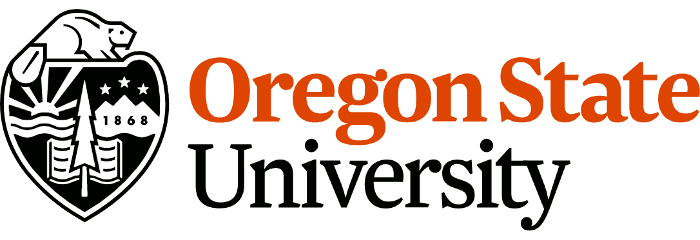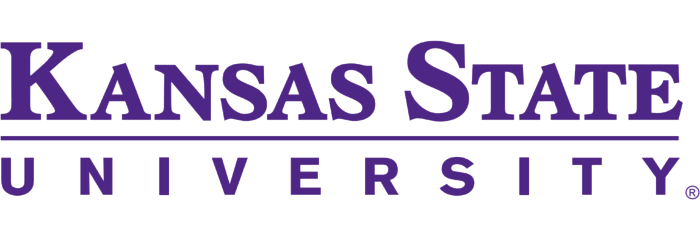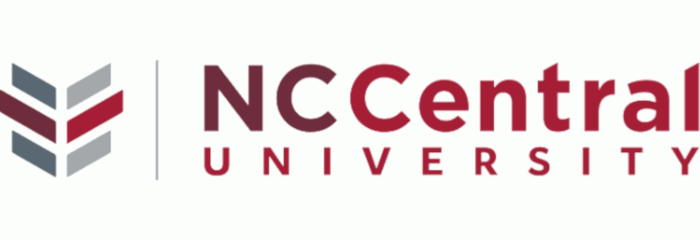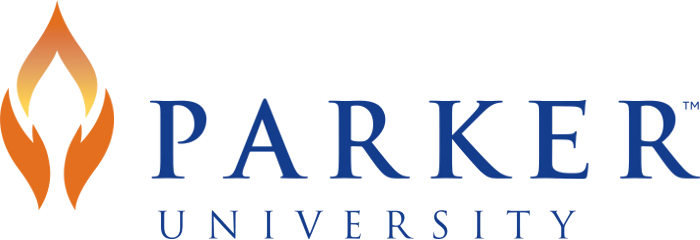Our list of the most popular online kinesiology degrees highlights accredited schools enrolling the largest number of distance learners overall.
Key Takeaways:
- At #1, Arizona State University Online leads with 52,896 online students attending.
- Oregon State University delivers strong outcomes, with graduates of the online Bachelor of Science in Kinesiology earning a median salary of $60,964. That's in the top 25% nationally.
Read our methodology to learn more about how we rank schools.
List Of Accredited Online Kinesiology Schools
| School | Online Enrollment | Annual Tuition |
|---|---|---|
| Arizona State University, Online | $24,780 | |
| Oregon State University | 10,449 | $11,760 |
| California Baptist University | 1,637 | $15,600 |
| Kansas State University | 1,436 | $12,143 |
| North Carolina Central University | 944 | $8,976 |
| Concordia University - Chicago | 432 | $15,150 |
| Parker University | 172 | $21,840 |
Most Popular Online Kinesiology Degrees
- Online Enrollment: 52,896 enrolled
- Annual Tuition: $24,780
- Locations: Tempe (AZ) (and 4 others)
Why we like them: Ranked #1, ASU enrolls 52,896 online learners total, which would mean that you would be attending one of the nation’s largest and most connected digital campuses. The kinesiology bachelor's program is online but does have a one-week, in-person organic chemistry lab intensive at the Tempe campus for those choosing that pathway, followed by virtual assignments.
- Online Enrollment: 10,449 enrolled
- Annual Tuition: $11,760
- Location: Corvallis (OR)
Why we like them: Ranked #2, OSU serves 10,449 online learners, placing it among the top 2% nationally for online enrollment. The BS in Kinesiology online program has a dedicated experiential learning coordinator to secure an internship, practicum, or project that fits your goals. And here, you study within the CEPH-accredited College of Health, giving you a public health–infused perspective.
- Online Enrollment: 1,637 enrolled
- Annual Tuition: $15,600
- Location: Riverside (CA)
Why we like them: CBU's program is an accelerated, 50-unit major that you can finish in as few as 16 months once general education is complete. This curriculum is aligned to both ACSM and NSCA standards and helps prepare you to sit for each organization’s certification exams.
- Online Enrollment: 1,436 enrolled
- Annual Tuition: $12,143
- Location: Manhattan (KS)
Why we like them: K-State's kinesiology online degree has an embedded three-course Well-being sequence that integrates community engagement, mind-body practices, and money-and-meaning literacy, a unique holistic angle. You can also access graduate-tier topical depth as an undergraduate, with physiology choices (e.g., cardiorespiratory and muscle, autonomic neurophysiology).
- Online Enrollment: 944 enrolled
- Annual Tuition: $8,976
- Location: Durham (NC)
Why we like them: NCCU's program has a Fitness and Wellness concentration with recorded video laboratory sessions and YouTube-based demonstrations that simulate testing used in athletic strength and conditioning facilities, giving you applied skill practices. Courses are aligned to the NSCA Certified Strength and Conditioning Specialist and the ACSM Exercise Physiologist exams.
- Online Enrollment: 432 enrolled
- Annual Tuition: $15,150
- Location: River Forest (IL)
Why we like them: CUC's kinesiology degree online can move vertically within CUC’s exercise science ecosystem, from the BS into stackable graduate certificates, multiple MS tracks in applied exercise science, and even a PhD in exercise science. You can also complete a two-course health and fitness programming sequence with adult first aid and CPR.
- Online Enrollment: 172 enrolled
- Annual Tuition: $21,840
- Location: Dallas (TX)
Why we like them: Parker has a perfect 100% recommendation rate and a low 7:1 student-to-faculty ratio, making it a great environment for more personalized, one-on-one instruction. This program has CASCE accreditation through the NSCA, an early-adopter credential that becomes pivotal as a CASCE-accredited degree will be required for the CSCS by 2030.
FAQs About Online Kinesiology Degrees
What Is An Online Kinesiology Degree?
An online kinesiology degree offers a detailed study of human movement, combining scientific theory with practical applications. These programs cover anatomy, physiology, biomechanics, and sports psychology to prepare graduates for careers in physical therapy, sports management, or advanced studies in health sciences.
Students pursuing an online kinesiology degree can expect to learn about different subject areas related to human movement, including anatomy, biomechanics, sports medicine, and motor control. Students also develop communication and interpersonal skills through coaching and teacher training. Many programs offer research and internship opportunities for the added benefit of gaining practical experience before entering the workforce.
Every kinesiology degree should come from an accredited school evaluated by an independent education agency. This is particularly true for an online degree kinesiology, where students aren't required to visit campus to meet their professors in person.
OnlineU ensures that all online degrees featured on our website are accredited.
How Long Does It Take To Get a Kinesiology Online?
A bachelor's in kinesiology is designed to take full-time students four years to complete. Most programs require 120 credits, which means students must complete between 12 to 15 credits per semester to graduate within four years. Students with previous college experience may be able to transfer a portion of their credits to shorten the time it takes to graduate with a degree in kinesiology.
What Courses Do You Take in an Online Kinesiology Degree?
Kinesiology courses explore subjects related to human movement and physical activity. There's a lot to cover in these areas, of course, leaving room for some programs to offer variations in their curriculums. Some degrees may include disease prevention studies, while others cover psychological components of exercise and sports.
Below are four common courses for kinesiology degrees:
- Basic Human Physiology: This is an all-important foundational course in kinesiology because it covers the biological functions of the human body. Students learn about the whole of the body, including its organs, cells, and tissues, and how they interact with one another. Class components include, among other subjects, the nervous system, cardiovascular system, homeostasis, and muscle.
- Contemporary Health Issues: A contemporary health issues course covers the physical, mental, social, and personal effects of various health problems. Students research drug and alcohol use, relationships, infectious diseases, and physical fitness, among other areas, to understand their impact on biological systems.
- Nutrition Science: Nutritional sciences look at the biochemical processes that occur when humans eat. While much of the course is scientific and covers metabolism, food digestion, and disease, students also learn about external factors that affect nutrition, such as convenience food, food policy, nutritional trends, and community health.
- Motor Development: Motor development is a core component of most kinesiology degrees. In this course, students learn how the human body utilizes muscles to execute tasks. It also teaches elements of physical growth from childhood to adulthood and into old age and how motor performance changes over a lifetime.
What Online Degrees Are Similar to Kinesiology?
Given kinesiology's broad curriculum, some students may wish to pursue alternative majors. These programs often focus on subfields of kinesiology that allow for more nuanced, detailed studies that remain in the health sciences. Others may include foundational kinesiology courses within their core curriculums.
- Exercise Science: An exercise science degree online studies physical fitness and, therefore, includes the analysis of body movement through kinesiology. Students also gain an understanding of nutrition, wellness, and sports that help them prepare for future careers as fitness trainers, athletic coaches, and physical education teachers.
- Health Education: A health education degree provides the skills to teach others how to improve their physical and mental wellbeing. Students learn what it means to make healthy choices through nutrition, exercise, and social studies. They also explore program evaluation techniques, develop analytical skills, and complete health education research.
- Physical Education: Aspiring teachers can also pursue a physical education degree with many of the same components as health education and exercise science. Here, students learn athletic coaching, injury prevention, and childhood development —, each with the purpose of working in K-12 classrooms, teaching children how to develop healthy habits.
- Physical Therapy: A physical therapy degree curriculum includes courses in patient evaluation, pharmacology, pain management, radiology, and exercise. It focuses more on injury prevention and rehabilitation but also includes the study of kinesiology alongside chemistry, biology, and anatomy. Physical therapists must complete doctorate degrees to earn professional licenses in their state, as well as pass the National Physical Therapy Examination.
- Health Sciences: A degree in health science might include kinesiology coursework, but it's more broadly focused on the healthcare industry, including leadership, communication, education, and organization. Public health is also a part of health science curriculums, although students may wish to pursue an entire public health degree to study biostatistics and epidemiology more closely.
- Holistic Medicine: An online degree in holistic medicine is designed to develop naturopathic physicians who use yoga, meditation, herbal remedies, and plant-based diets to treat illnesses. It also goes by other names, such as a wellness degree or alternative medicine, although students still take courses in physiology, anatomy, and movement.
What Jobs Can I Get With an Online Kinesiology Bachelor's Degree?
Kinesiology careers vary based on what concentration students take, such as fitness training, sports medicine, or physical education. These professional tracks help graduates aim for specific jobs that require training in body movement and an understanding of human physiology. Some students wish to continue their studies through graduation programs, such as a master's in health education or a master's in exercise science. Some graduate programs may require previous work experience, which can be achieved through the positions listed below.
are responsible for creating health and fitness programs that assist patients in their recovery from illness or to prevent the worsening of health issues. They may work with patients with physical injuries, cardiovascular health problems, or respiratory diseases, where they analyze their symptoms and develop treatment plans.
assess clients' physical strengths and weaknesses before creating personalized programs that help them reach their goals. Generally, they help them build muscle and develop good fitness habits by teaching techniques and forms for lifting weights. They may also be known as fitness instructors, leading classes for specific exercises.
train, manage, and organize sports teams or individual athletes. They monitor, lead, and develop practice sessions to improve performance and create positive outcomes for future competitions. Coaches may work in various environments depending on the sport and the age of athletes, from youth leagues to university programs and professional teams.
help patients develop healthy habits and manage illnesses through nutrition programs. This may include analyzing diseases, assessing patient needs, developing meal plans, and monitoring and recording patient progress. Their work may also be proactive in helping individuals create healthy eating habits before physical activity.
What Are the Admission Requirements for a Kinesiology Degree?
When picking a college for a kinesiology degree, students should note what's required during the admission process. Most undergraduate programs only ask that applicants have a high school diploma and fill out an online application. The application may have room to submit personal essays that outline the student's reason for pursuing a kinesiology degree. In addition, some schools may have minimum GPA requirements of 2.0 to 2.5; others may have open admissions.
Can I Get a Kinesiology Degree 100% Online?
Most online kinesiology degrees can be completed entirely online without the need to visit campus. Some programs require the completion of internships, which typically occur in person at athletic, healthcare, or clinical facilities. In this case, students coordinate with their school's faculty to arrange for work at an approved organization. This, combined with the comprehensive online curriculum, means that an online degree is respected by potential employers.
What Is a Kinesiologist?
Kinesiologists use their understanding of body function and movement to help patients better their overall well-being. They treat injuries, rehabilitate athletes, provide preventative care, and improve motor skills through exercise. Sometimes kinesiologists are also known as fitness specialists, mobility technicians, or injury prevention specialists.
How Do I Become a Kinesiologist?
Kinesiologists need a degree in kinesiology or a related subject, such as exercise science. They do not need a license to gain employment, but most employers ask that bachelor's graduates have some practical experience in the field before they are hired. Related careers, such as athletic trainers, need a degree alongside a license in most states.
Are Kinesiology Degrees Worth It?
Here are some pros and cons of obtaining a kinesiology degree:
Benefits
- Kinesiology degrees are well-rounded. Graduates are equipped to pursue a range of occupations, from fitness training to teaching.
- Kinesiologists help people overcome physical obstacles. This type of satisfactory work leads to professionals having great pride in their careers.
- Some kinesiology careers offer independence from the traditional 9-5. Sports coaches and teachers have ample time off outside the school year, and fitness trainers often act as entrepreneurs hosting clients on their schedules.
Drawbacks
- Fitness salaries are generally considered low. The reports that median fitness salaries from 2021 were $13,000 less than all other occupations.
- Many in this field require additional training. Athletic trainers, chiropractors, occupational therapists, and physical therapists need graduate degrees and professional licenses.
- Online kinesiology degrees lack hands-on training. Although internships are available, professionals almost exclusively work with their hands and directly with patients, which is challenging to gain in online settings.
So, Is Kinesiology a Good Major?
Kinesiology degrees are worth it for health-minded students who want to work in the broader health science field directly with patients, athletes, or communities to improve their physical well-being through fitness, sports, and exercise. Graduates leave with foundational knowledge in topics such as disease prevention, movement anatomy, biomechanics, and fitness techniques. The coursework can lead to many health science careers, or it can help students advance their academic training through an affordable master's in exercise science.








